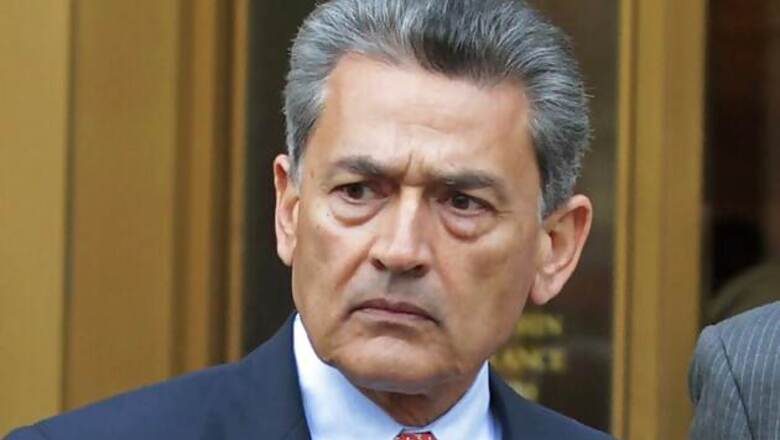
views
New York: The jury, which convicted one of the most prominent Indian-Americans in the US Rajat Gupta of securities fraud, said it wanted him to walk a free man after the trial, but the evidence against him and his "need for greed" was just too "overwhelming".
Former Goldman Sachs director Gupta, 63, sat expressionless, flanked by his lawyers, in Manhattan federal court as the jury read out its guilty verdict on Friday. It was a difficult day not just for Gupta and his family but for the jury of eight women and four men as well.
As the 12-member jury left the courtroom after delivering its verdict in Gupta's month-long insider trading trial yesterday, two were in tears. Gupta's four daughters broke down and sobbed loudly as the guilty verdicts were pronounced while his wife rested her head on her hand and leaned on the courtroom bench.
Gupta looked at his family now and then, giving them a consoling glance. After the jury left the courtroom, he hugged his lawyers and walked up to his wife and daughters. The emotional family stood in a huddle for a long time. Gupta did not speak to the press as he left the courthouse, mobbed by journalists and camera persons.
Jury foreman Richard Lepkowski, 51, who read out the verdict in court, said he had not wanted to convict Harvard-educated Gupta of insider trading. "I wanted to believe the allegations weren't true," Lepkowski told reporters after US District Judge Jed Rakoff adjourned the case yesterday afternoon.
"Here was a man who came to this country and was a wonderful example of the American Dream." "But at the end of the day, those allegations on which we found guilt -- the evidence was overwhelming," said Lepkowski, a New York resident and an executive at the nonprofit
Children s Tumor Foundation.
Incidentally, it was Lepkowski's 51st birthday the same day he had handed out a guilty verdict to Gupta which could land the former McKinsey head for up to 25 years in jail. Lepkowski said it was a "difficult decision" for the jurors, who felt Gupta had lived a "story-book life" and "the American dream" but the case was just too strong.
Another juror, 53-year-old Ronnie Sesso told the media persons that she had "struggled" to reach the verdict. "I was trying to determine the outcome of this person's life," said Sesso, a youth advocate who works for New York City's Administration of Children's Services.
"We wanted him to walk, go home to his family and live a very prosperous life," she added. Lepkowski and Sesso described that motive and the circumstantial evidence was a key concern for the jurors as they weighed the evidence.
The jury focussed on what would prompt Gupta, who according to a prosecution witness had a net worth of USD 80 million and had an enviable career, to pass inside information to Rajaratnam.
One reason was that Gupta wanted Rajaratnam's help in building his private equity fund, New Silk Route, they felt. "What did Gupta get out of this by giving Rajaratnam the information? Was it the future, was it cash?" Sesso said.
"Ultimately, it was his need for greed: 'I could get away with it once and I'll do it again,'" she said. Gupta was manipulated by Rajaratnam, Sesso said calling Rajaratnam "a snake in the grass."
"Raj Rajaratnam was a very manipulative man, and he made it easy for Gupta to share this information," Lepkowski said. "For Raj and Galleon, this was normal operating procedure ... Rajaratnam made it easy for Gupta to break the law."
The jurors convicted Gupta of one count of conspiracy and three counts of securities fraud, which carried a maximum sentence of 20 years in prison. They acquitted him of two counts of securities fraud.
Gupta's lawyer Gary Naftalis had made a strong plea to the jury in his closing arguments Wednesday that they return a not-guilty verdict. "For Gupta, this is the case in which whatever you decide here will mark whatever future he has left," Naftalis had said in a low tone. The jurors reached the verdict after deliberating for a total of nine hours, spread over two days.
The verdict in now-jailed Galleon hedge fund founder Raj Rajaratnam came after 12 days of jury deliberations. The incriminating evidence against Gupta in the form of the phone calls that he made to Rajaratnam just seconds after board meetings and the subsequent trades by the Sri Lankan convinced Sesso of Gupta's guilt.
"The information and then the actions taken," she said. "For me, that was the end result." "We never got comfortable with anything," Lepkowski said.
"The saddest part of the trial for me was the two character witnesses -- one who came from India" to testify for Gupta "and the one who knew him since fifth grade."
Naftalis had told the jury in his opening arguments on May 21 that his client had been orphaned in his teens and he rose through the ranks based on hard work, honesty and dedication. Gupta's wife, four daughters and friends sat in the courtroom each day of the trial. Lepkowski said the jurors saw Gupta was a family man and had a lot of support from friends.
"I can see the love and passion he has for his family," Sesso said, adding that jurors talked about the charities for which Gupta raised money. A juror Agnes Sanders, who is a retired librarian from Manhattan said it was a hard decision. "I'm sure we reached the right verdict, but it's hard."












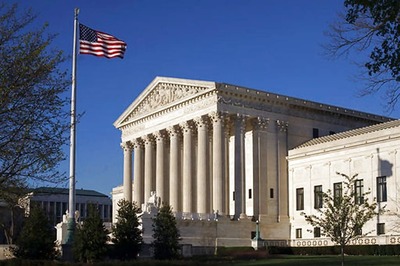

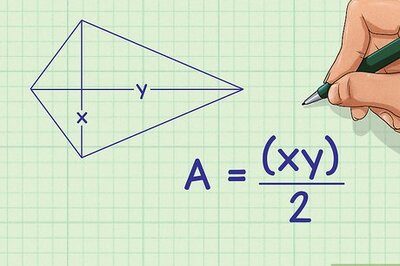



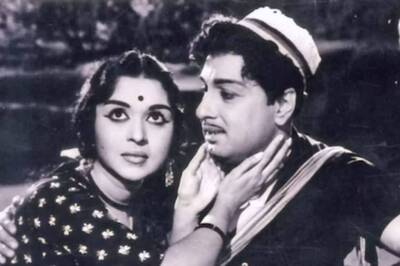
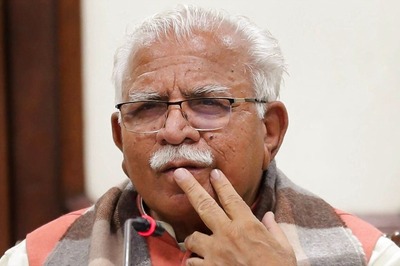
Comments
0 comment